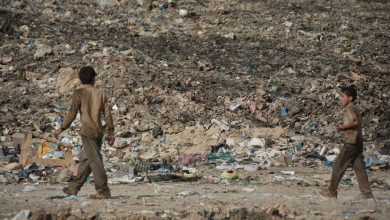Returning ‘home’ after a prolonged migration, I found myself in a country that felt foreign and unfamiliar. The Russia I once knew had transformed into a place where conversations about current events and politics are hushed, and open expression of views is rare. This project explores the profound sense of dislocation, anxiety, and alienation I experienced upon my return. It is a visual narrative of my journey through a transformed homeland, capturing the pervasive sense of unease and the struggle to find a place within it.


The project captures the stark contrast between the familiar and the unfamiliar, highlighting the tension, uncertainty, fear, and anxiety that pervade everyday life. Through the lens of motherhood, these feelings are magnified as I navigate this changed landscape with my children who have never lived here. The questions that arise are deeply personal: Has the country changed, or have I? Who are the people that inhabit this place now, and how do they perceive and cope with the pervasive sense of unease that I feel so acutely?



The project includes a series of portraits of individuals from various walks of life. Among these are figures like Soviet diplomat Vyacheslav Matuzov, who offers controversial perspectives on geopolitical conflicts, and Maria Andreeva, the wife of a mobilised soldier. I photograph places and urban
landscapes that convey the invisible feeling of anxiety and hostility. These images highlight the militaristic symbols as the country seems to roll back into the Soviet past and propaganda that has become commonplace, as well as spaces that resonate with emptiness and desolation. Through intimate photographs of my children, I document my children’s experiences and reactions, from fear to confusion, that seems to mirror my own sense of disorientation and concern for their future. The project documents political activism, such as the signature collection for independent presidential candidate Boris Nadezhdin.

Yet, beyond these individual stories, my photographs reflect my own growing sense of alienation. I feel like a foreigner in my own homeland, unsettled by the military presence that has become commonplace. The sight of soldiers returning from the frontlines should be jarring, but the city moves on without noticing them, as if they belong more than I do. I feel the weight of this invisible tension—the fear, the anxiety, and the numbness to the militarism that permeates everyday life. While others seem to accept it, I cannot shake the discomfort of walking through these streets, where propaganda army posters replace the ordinary and soldiers become part of the scenery, unnoticed by passersby. It’s a heavy, constant reminder that this place—once home—has become something foreign and deeply unsettling.


These encounters, alongside the omnipresent propaganda posters calling for participation in the war, reflect the deep divisions and tensions in society. My work attempts to give voice to these untold stories, to illuminate the fear, alienation, and anxiety that shape life in modern Russia.
“My Hostile Homeland” employs a documentary photography style, aiming to create an authentic and raw portrayal of my experiences and observations. The juxtaposition of personal and public spheres, aims to evoke a deep emotional response and provoke thought about the complexities of identity, belonging, and change.










